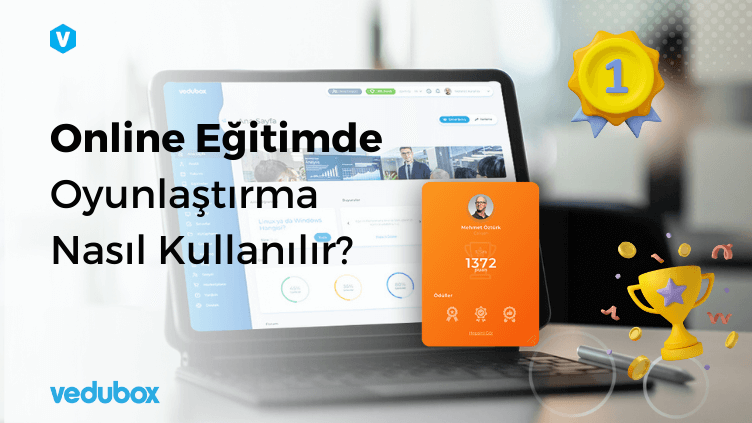[vc_row][vc_column][vc_single_image image=”16428″ img_size=”full”][/vc_column][/vc_row][vc_row][vc_column][vc_column_text]The technology has advanced at a great pace. It is hard to ignore this change, which is inevitable in many areas of our lives, including education. Especially with the introduction of LMS (Learning Management System), the learning experience has gained a brand new meaning.
Public institutions, private schools, independent bodies, international businesses, small and medium-sized enterprises, and many more similar institutions have started transporting learning experience to LMS programs. In terms of onboarding processes, companies have entered a new age with the inclusion of onboarding training, which is the focus of this article, into LMS.
What is LMS (Learning Management System)?
LMS is a kind of technology with which we frequently encounter in daily life. Course platforms like Udemy and Khan Academy, which enable desktop and mobile access to various forms of education, and foreign language education platforms like Dualingo and Cambly are based on LMS technology.
In other words, LMS is a type of computer software that provides education services through web and mobile applications. Alongside the instances above, it is also intensively used in onboarding training in companies.
What is Onboarding?
Onboarding represents the employment orientation period. Onboarding training plays a vital role for employees to form strong bonds with their workplaces. In this process, the newcomers meet the corporate culture of the company. They get the knowledge that they need to perform their positions’ responsibilities.
The onboarding or employment orientation period in the traditional method consists of showing the office and introducing some coworkers. But this is now changing. Now the business world is aware that it is a long-term gain for them to increase the efficiency of this process.
According to Aberdeen’s research, 83 percent of the highest performing organizations began onboarding before the new hire’s first day on the job. BambooHR’s research indicates how this process is significant for the employees, as well because three-fourths of the new hires say that the training in their first week is the most important.
The advantages which LMS offer in the onboarding process
LMS offers many benefits, especially to the companies when it comes to the focus of training in the onboarding process. Let’s view these benefits together.
1- LMS saves you money and time
By using LMS to create and execute training and teaching programs, you can save working time in contrast with the traditional methods. Because when the onboarding training is moved to the digital environment, certain costs such as transportation and venue organization are eliminated.
Furthermore, digital classes enable employees from different regions to get trained simultaneously. So you will not need to arrange different pieces of training for different branches. With a central application, training can be provided to a wide audience at the same time. Also, these pieces of onboarding training can be reused again with different employee groups. The training language can be localized if it is needed.
2- Users can reach the knowledge easily from anywhere they want
The digitalization of our world and the emergence of LMS take the limits and challenges of training away. Now the employees in training processes can reach all the courses, calendars, multimedia contents, archives, and reviews by a single click.
Therefore, in the digital world, all employees can reach contents and materials whenever they want as long as they have an internet connection.
3- It offers a unique experience with its personalization feature
One of the most significant advantages of LMS for companies is the personalization of the system for a specific company. Therefore, the platform reflects the corporate culture and brand identity. Various factors and features can be adapted according to the company’s preferences.
In this way, new hires in a company can make their adaptation process efficient. They can get used to the corporate culture in a fast way.
4- You can change the onboarding training content quickly
Changing or updating the onboard training content and the resources are quite straightforward with the cloud-based LMSs. When we think of the fact that 41 percent of the HR professionals need to update their current training content, this is a significant advantage.
Companies can change the content, materials, and resources of training at their will. They can share those materials instantly with their employees. Moreover, since those changes are made up of a system update, they do not need a total change in the system. This reduces the cost to a large extent.
5- It provides multimedia training with an advanced technology
When video, image, presentation, audio, and text files are used together, they play an educative role in gaining new information and skills. Industry-leading LMS software programs like Vedubox, provide companies with the opportunity of creating a multimedia training that contains all these file formats.
Through LMS, the users can ask questions to the trainer and the other users in one platform, and they can answer the others’ questions. They can enter the exams and hand their homework in just like in a classroom environment.[/vc_column_text][/vc_column][/vc_row]







